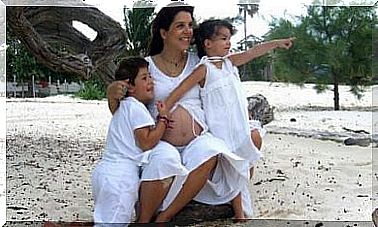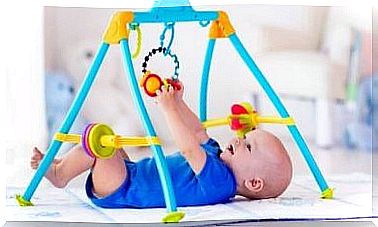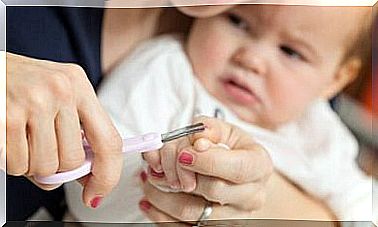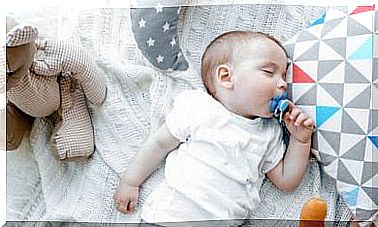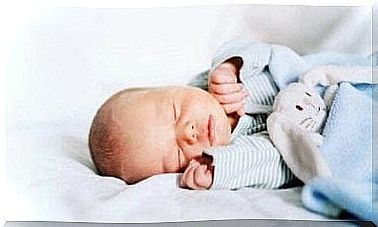Gastroesophageal Reflux Disease In Babies

All babies spit out fluid from time to time. Sometimes, they even vomit. However, when the situation arises regularly and frequently, it may be something else. These cases can often be caused by gastroesophageal reflux disease, abbreviated GERD.
Gastroesophageal reflux disease is a probability when reflux of stomach acid occurs regularly and lasts from 12-14 months. It is not a cause for serious concern, but one has to consider some effective remedies.
In this article, we will take a detailed look at GERD.
Understanding of gastroesophageal reflux disease in infants
The esophagus, better known as the esophagus, is the tube that allows the passage of food from the mouth to the stomach. It consists of a muscle known as the lower esophageal sphincter (LES). Like a flap, it facilitates the transit of meals.
When functioning normally, LES relaxes and allows the fluid passage of food. However, in some babies, this muscle is not fully developed, affecting the esophagus. The result: the baby vomits up the milk, whether it is breast milk or breast milk substitute.
Basically, GERD occurs due to a lack of control of the esophageal sphincter. In affected children, the sphincter relaxes and unfolds randomly. The situation is resolved when this muscle has finished developing.
GERD symptoms in babies
Vomiting and reflux are the most common symptoms of this temporary medical condition. However, there are also other signs that the baby will exhibit if it is affected.
A specific symptom is a curvature of the back while the baby is eating. Babies with this condition tend to tilt their head back when breastfeeding. They may also experience difficulty swallowing.

Other symptoms include cough, chronic colic and minor complications with breathing. Furthermore, affected children have a tendency to reject food, which can result in some degree of weight loss.
Diagnosis of gastroesophageal reflux disease in infants
There are several medical tests that can diagnose gastroesophageal reflux disease in babies. Of course, there is only one way to confirm this condition and that is by consulting a pediatrician. These are the three studies that are being done:
- Oesophageal pH monitoring: this test measures the amount of acid in the infant’s esophagus. The level of this substance is higher in children with GERD. To measure it, a tube is inserted under medical supervision.
- Upper gastrointestinal examination: this consists of mixing a contrast fluid with milk in a bottle. The baby drinks it and the doctor takes an x-ray to determine the shape of the baby’s upper gastrointestinal tract.
- Upper gastrointestinal endoscopy: an endoscope with a camera is introduced into the baby’s gastrointestinal tract. The purpose is for the doctor to be able to see the shape of the muscle. Furthermore, the doctor may also take a sample of the tissue (biopsy).
The most effective treatment
GERD in babies requires parents to pay more attention to the way they feed their baby. The first step is to help the child burp more frequently. It should occur not only after food but also during food.
After meals, place your baby in a vertical position. It will be necessary to maintain this position for half an hour after the baby has eaten.
Some doctors recommend using products such as rice cereals. The idea is to mix them with the milk in the baby’s bottle. There are also specialists who suggest changing the infant formula.
In addition, there are some medications that pediatricians can prescribe if needed. Examples include H2 blockers and proton pumps. Both treatments help reduce the amount of acid in the stomach.
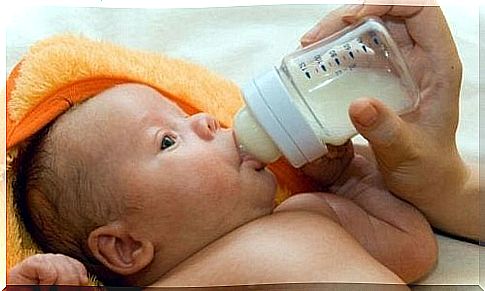
An uncommon problem
Only 10 percent of babies develop this problem due to an underdeveloped LES. In most cases, the condition can be overcome without major complications. Only a very small margin of affected children need to be operated on.
Parents should be aware of any signs of this condition and consult a pediatrician when needed. This professional is the only one who can diagnose the condition with certainty. Once it has been diagnosed, you just have to be more careful when feeding a baby with GERD.

